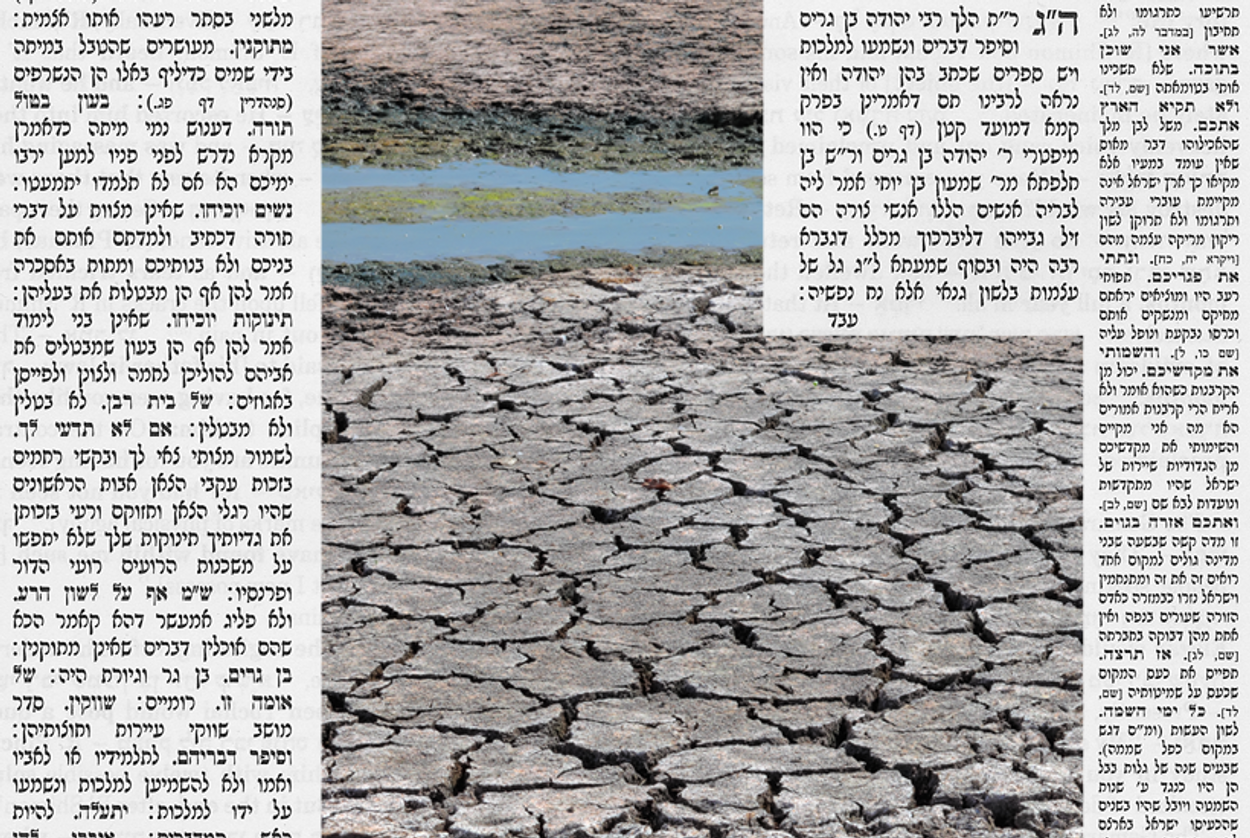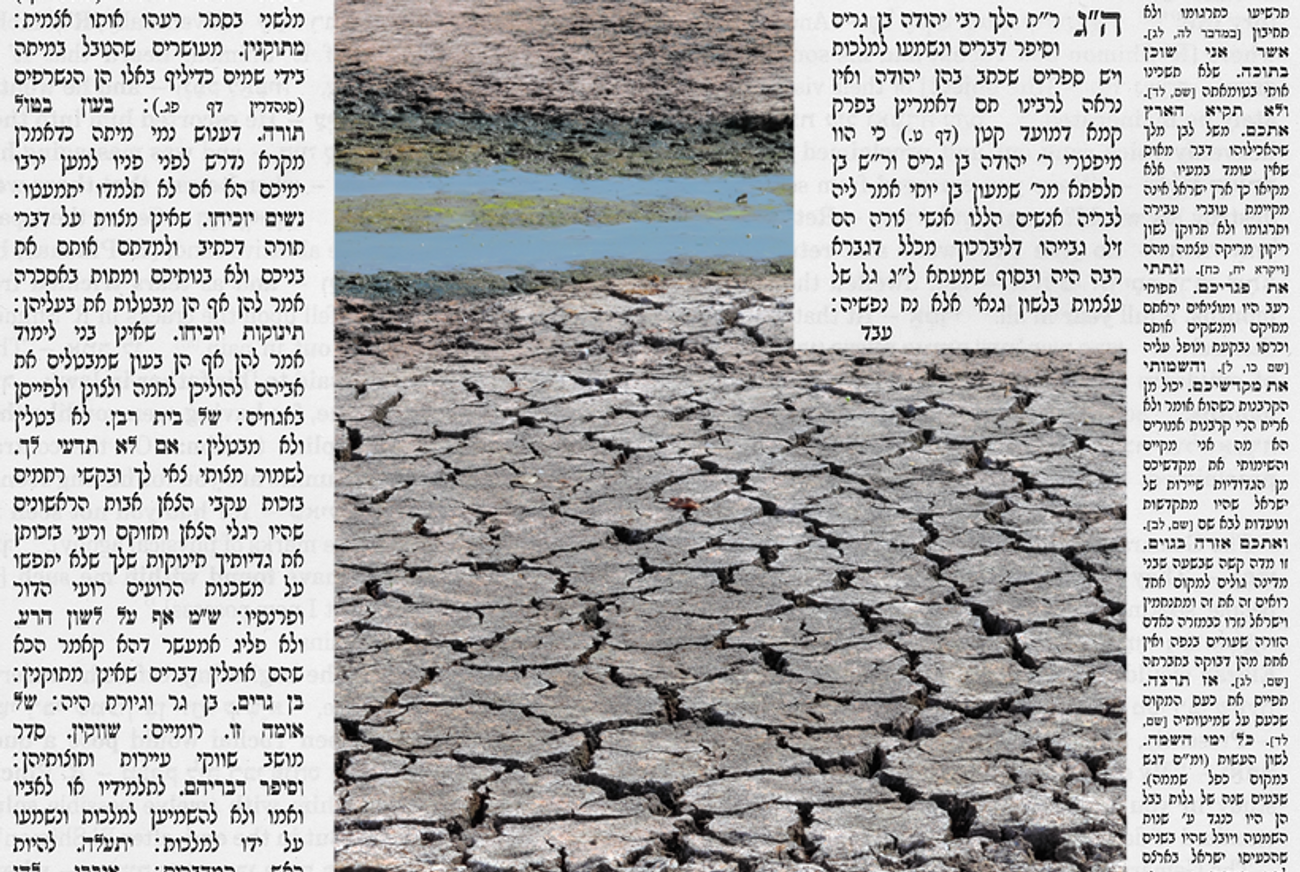Why Even the Greatest Rabbis Can’t Be Trusted
Talmudic thinkers debate the ethics of winning God’s favor, and when a holy person can be too righteous




Literary critic Adam Kirsch is reading a page of Talmud a day, along with Jews around the world.
In this week’s Daf Yomi reading, Chapter 3 of Tractate Ta’anit, the Talmud turned from the laws of fasting to give us a feast of aggadah. This chapter, I learned from the Koren Talmud, is known in early commentaries as the “Chapter of the Pious,” because it mostly consists of legends about the great sages and their ability to work miracles with God’s help. In telling these stories, however, the Talmud is also pursuing a serious ethical investigation: The rabbis are trying to determine exactly what qualities enable men to win God’s favor. Just as important, the Talmud insists that even the power of the pious is capable of being abused. The ability to coerce God can lead to hubris and vanity—the vices that lie in wait for people proud of their own sanctity.
This is the lesson of one of the most famous anecdotes in the Talmud, which we read in Ta’anit 19a. During a bad drought, the people came to a holy man named Honi HaMe’aggel (“Honi the Circle-Drawer”) and asked him to pray for rain. With a certain hubris, Honi told them to make sure to bring their clay ovens inside, lest they be melted in the rain that his prayer was sure to bring. When he prayed for rain, however, nothing happened. So Honi, acting rather like a child who didn’t get his way, decided to manipulate God into doing what he wanted. “What did he do? He drew a circle on the ground [thus explaining his name] and stood inside it and said before God: Master of the Universe, Your children have turned their faces toward me, so I am like a member of Your household. Therefore, I take an oath by Your great name that I will not move from here until You have mercy upon Your children.” At this, a trickle of rain started to fall, but Honi told God that it wasn’t good enough: “I did not ask for this, but for rain to fill the cisterns, ditches, and caves.” Thereupon the rain started to fall in floods, but Honi wasn’t satisfied with this either: “I did not ask for this,” he told God, “but for rain of benevolence, blessing, and generosity.” Finally, having got the amount and quality of rain he wanted, Honi asked God to make it stop.
The story is told in such a way that we can’t help disliking Honi even as we admire him. He seems too sure of his righteousness, too confident in his ability to get his prayers answered. Surely a pious man is supposed to beseech God humbly, not order him around like a waiter in a restaurant until he brings the right thing. That was certainly the feeling of Shimon ben Shetach, the leader of the Sanhedrin; according to the Gemara, Shimon told Honi, “If you were not Honi, I would have decreed ostracism upon you.” The reason is that, if God had not responded to Honi’s prayers—as he might well have refused to do, for reasons of his own—Honi’s public challenge to God would have led to the “desecration” of the name of Heaven. For a human being to set himself up as an authority over God is a great sin—something that many religious leaders, even today, have a hard time remembering.
This lesson is driven home by another story, in Ta’anit 20b, about Rav Adda bar Ahava. This holy man lived in the Babylonian city of Nehardea, where he was famous for his sanctity. One one occasion, Rav Huna had a store of wine inside a dilapidated building that he was afraid would collapse. Cleverly, Huna invited Adda to stand in the building with him and discuss halakha while workmen removed all the wine; he knew that Adda was under God’s protection, so that the building would not collapse while he was inside it. Indeed, as soon as Huna and Adda left the building, it fell down. But when Adda realized what Huna had done, he got angry, because of the principle that “a person should never stand in a place of danger and say: A miracle will be performed for me, lest a miracle is not performed for him.” No matter how confident you are of God’s protection, it should never be taken for granted or publicly guaranteed, because it is not man’s place to give God orders—a lesson Honi the Circle-Drawer evidently never learned.
Still, Shimon couldn’t deny that God had done everything Honi asked for. “What can I do to you, as you nag God and he does your bidding, like a son who nags his father and his father does his bidding. And the son says to his father: Father, take me to be bathed in hot water; wash me in cold water; give me nuts, almonds, peaches, and pomegranates. And his father gives him.” This glimpse of what spoiled children in the Talmudic era sounded like is oddly charming, and it paints an appealing picture of God as an indulgent parent, rather than a stern judge or mighty king.
Other holy men, however, knew better ways to exercise their influence over God, without openly daring him to refuse a prayer. In Ta’anit 23b, we read about Abba Hilkiyya, who was Honi’s grandson and who inherited his grandfather’s holiness. “When the world was in need of rain they would send sages to him, and he would pray for mercy, and rain would fall.” When the deputation came to ask for rain, however, Abba Hilkiyya did not allow them to speak their request. Instead, guessing what they were about to say, he and his wife went up to the roof and prayed for rain secretly. Immediately, rainclouds began to form above his wife’s head. When Hilkiyya went back downstairs and spoke to the visitors, he was able to point out that rain was already coming, so they didn’t need to ask his help. Through this stratagem, he made it appear that the rain was not in response to his prayer but was God’s own gift. This extreme modesty stands in sharp contrast to his grandfather’s public challenges to God. And the modesty extended still further. When asked why the clouds formed over his wife’s head first, Hilkiyya explained that she was an even better person than he was: “When certain hooligans were living in our neighborhood, I prayed that they should die, but she prayed that they should repent.”
Other holy men were not so careful to avoid the sin of haughtiness. Rabbi Elazar, the son of Rabbi Shimon ben Yochai, is one of the most powerful sages in the Talmud. Back in Tractate Shabbat we learned about how Elazar and his father spent years in a cave, buried up to their necks in sand, learning the secrets of Torah. Now we read, in Ta’anit 20b, that Elazar’s “head was swollen with pride because he had studied much Torah.” Once he was riding on a donkey when he met “an exceedingly ugly person” who greeted him politely; but Elazar responded with a nasty remark: “How ugly is that man. Are all the people of your city as ugly as you?” Immediately the man shamed him by replying, “I do not know, but you should go and say to the Craftsman Who made me: How ugly is the vessel you made.” This retort made Elazar repent his cruelty, and he begged the man for forgiveness, which was granted on the condition that Elazar not be so haughty in the future. After this episode, Elazar would teach, “A person should always be soft like a reed and he should not be stiff like a cedar.”
All of these stories glorify Torah sages, who are the usual heroes of Talmudic stories. But some of the tales in Chapter 3 make clear that even ordinary people can win God’s favor through ethical behavior. Rava, we read, would “receive greetings from the Yeshivah on High”—the celestial academy where the souls of dead sages resided—every year on Yom Kippur, and Abaye would receive greetings every Shabbat; but a man called Abba the Bloodletter would get these greetings every day. What made Heaven favor a man who plied the lowly trade of barber-surgeon? The answer is that, when he let a woman’s blood, he made sure to cover her with a special garment so that he never saw her bare skin. Moreover, he would receive payment in secret, so that poor people didn’t have to be embarrassed if they couldn’t afford his fee.
A similar story is told about Rabbi Beroka Hoza’a, who stood in the marketplace with Elijah the Prophet and asked Elijah which of the passerby were worthy of the World to Come. Elijah pointed to a man who was not even wearing tzitzit. How could such a sinner deserve to go to Heaven? When Beroka Hoza’a spoke to the man, it turned out that he was a prison guard, who devoted himself to protecting Jewish women prisoners from the assaults of gentiles. He did not wear tzitzit, he explained, because he passed as a gentile at work; in this way, he could get word of decrees issued against the Jews and tell the community about them right away. This zeal for protecting Jews made him even holier than those who devoted their lives to Torah. Piety pleases God, the Talmud shows, but goodness pleases him even more.
***
To read Tablet’s complete archive of Daf Yomi Talmud study,click here.
Adam Kirsch is a poet and literary critic, whose books include The People and the Books: 18 Classics of Jewish Literature.
Adam Kirsch is a poet and literary critic, whose books include The People and the Books: 18 Classics of Jewish Literature.